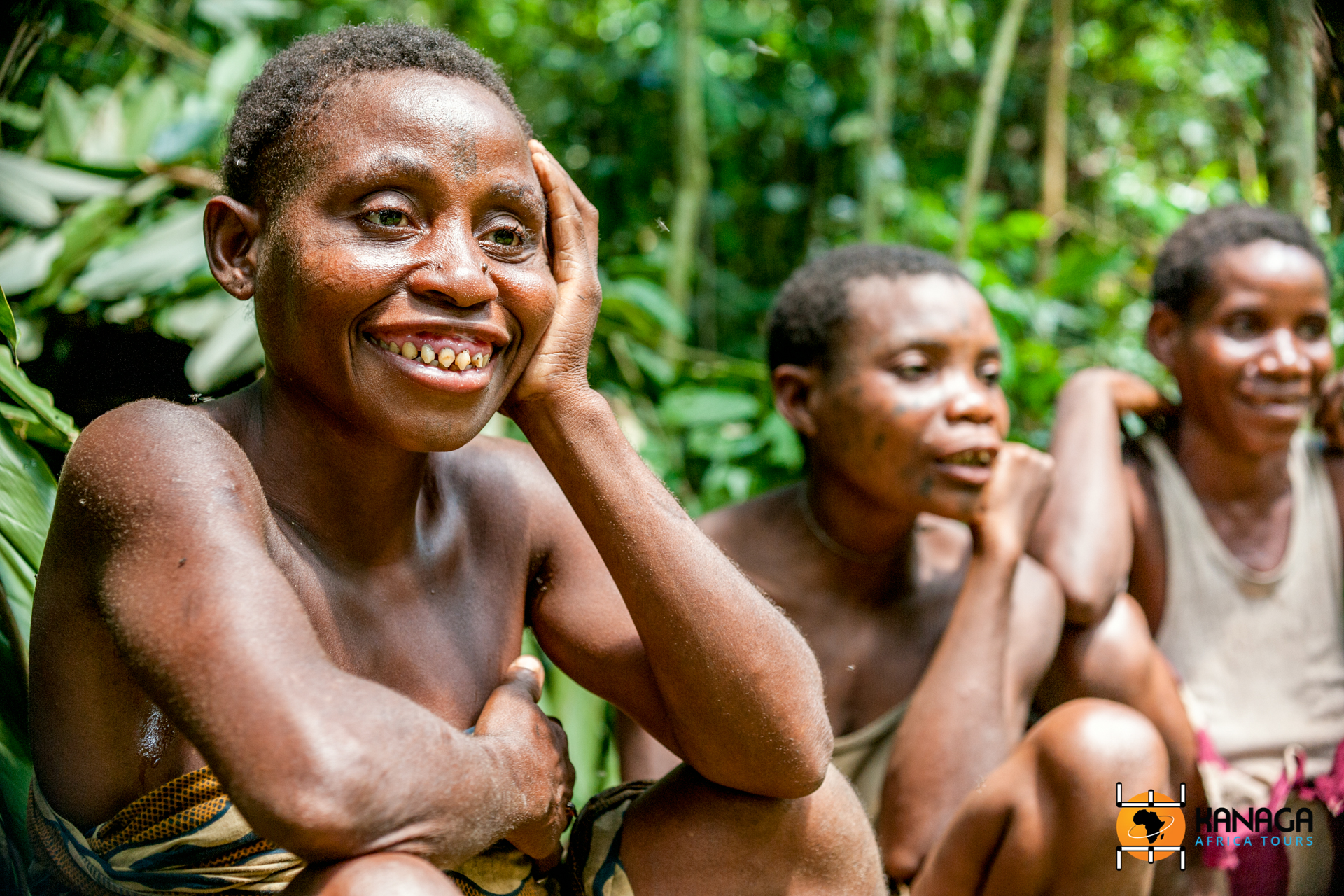Stretches of impenetrable forest are inhabited by the Aka, Bofi and Baka pygmy groups in the heart of the Bayanga and Sangha Mbaeré regions. Indigenous, they are the sole custodians of the secrets of the primeval forest, and today continue to perpetuate their ancestral lifestyle, in contact with the wildest nature.
A population of semi-nomadic gatherers and hunters, famous for their small size, but also for their rich oral traditions, dances and polyphonic songs (nominated on UNESCO’s intangible list), their origins remain quite mysterious. They probably migrated to the time of the ancient Egyptian kingdoms from the Nile Valley, settling on these lands in prehistoric times, or at least long before the Bantu peoples settled. Most of them continue to practise the itinerant life in the virgin forest, in symbiosis with nature and finding in it the necessary subsistence. The pygmy healers are often called upon by other local populations who do not have easy access to modern medical care.
The Pygmy communities have settled in a landscape that is exceptional for its environmental value, in an area covered by humid equatorial forests that have remained largely untouched. They practice traditional subsistence hunting, avoiding the protected species that inhabit these green lungs, such as chimpanzees, gorillas and herds of elephants. A great wealth of endemic plant species characterises the environment, of which the Pygmies know the many culinary and medicinal properties, including the altering effects of some of them, used in initiation rites.
While it is therefore essential to have their guide to unravel the otherwise impenetrable passages of the forests and to follow the tracks of wild animals and bird varieties, it is a unique experience to participate in a traditional hunting trip with them or in an initiation to learn about plants. Traditionally completely removed from farming, livestock breeding and iron or clay working, their hunting tools are as rudimentary as can be, made from bark, sticks, stones and liana ropes, while their small temporary camps are made of skilfully woven huts of branches. Hence their great ability to track down and stalk their prey with little means. While the men are the repositories of the hunting secrets, it is often the women who are initiated into the therapeutic and nutritional properties of the plants, while the oldest member of the clan acts as the clan’s higher authority and introduces the history and the oral and sung legends of the Pygmy people.
Staying in one of their camps is a unique ecotourism experience, in contact with timeless traditions and a primeval natural environment. It is exciting to watch the purifying and propitiatory rites in the event of unsuccessful hunting, with hypnotic dances and songs around the strings of lianas used to strike the prey. It is amazing to learn how to drink the drinking sap that flows from the bark of the damp lianas. It is unforgettable to attend their ceremonies with enchanting polyphonic choirs, or to participate in the harvesting of medicinal plants and their processing, concluding with a tasting of freshly fermented palm wine and a roast of freshly hunted game, in the wildest heart of equatorial nature.
All this is done with the only resources that nature has to offer and that the age-old know-how of these peoples know how to transform into a livelihood.







